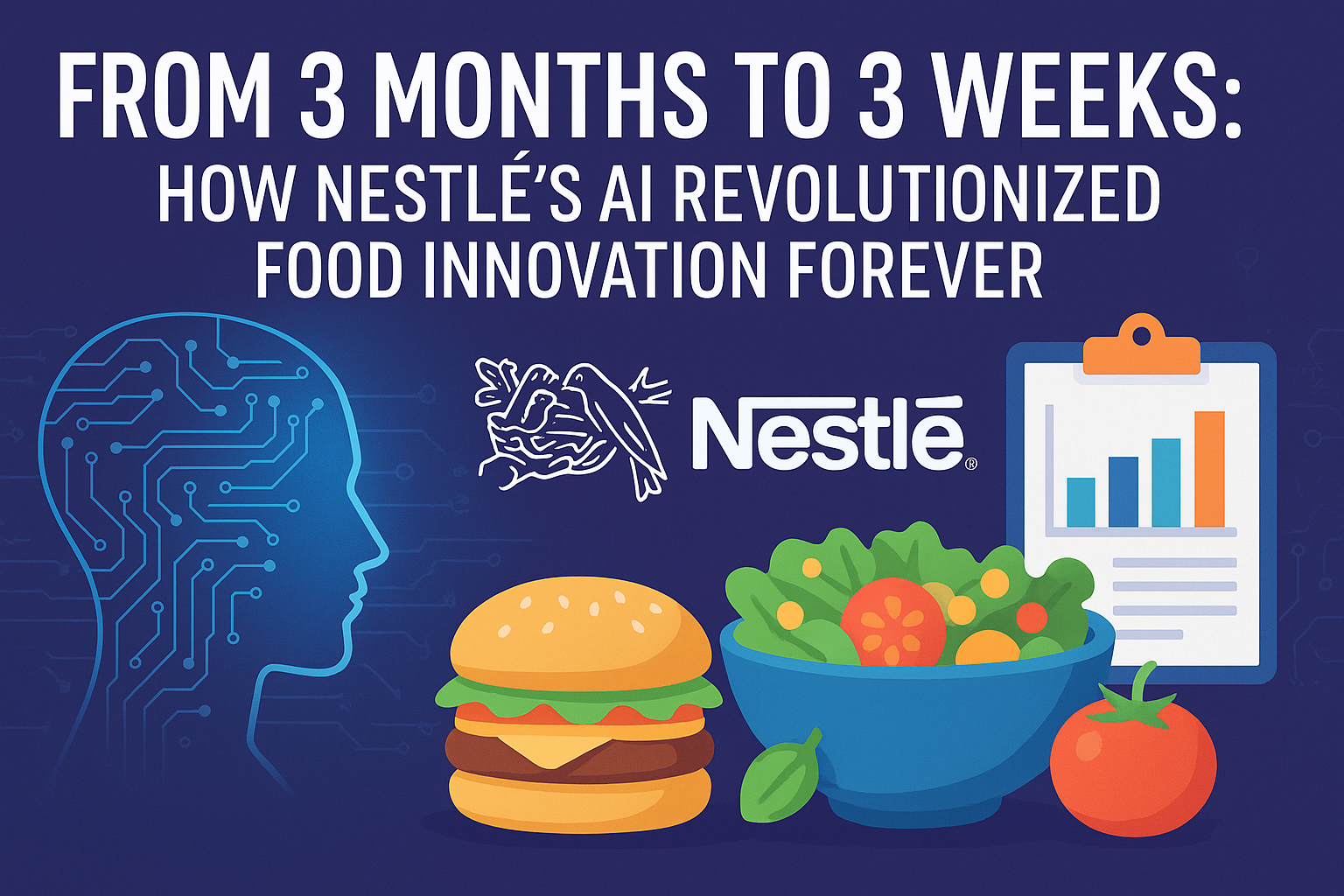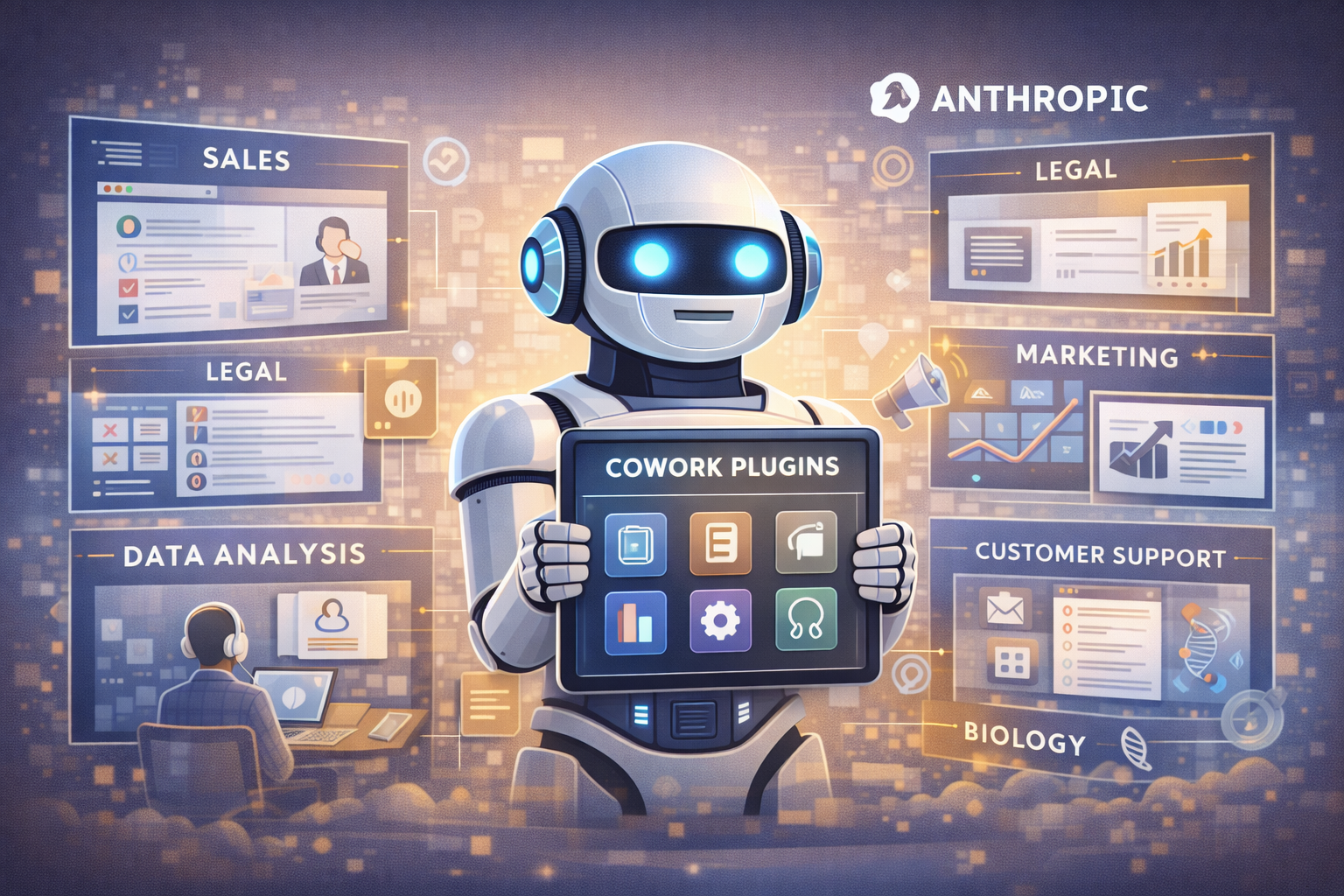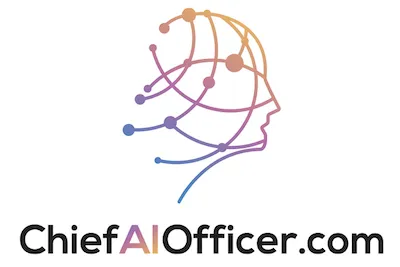Most food companies spend months developing new product concepts through lengthy market research and creative brainstorming sessions. Nestlé built an AI system that generates over 1,300 product ideas in minutes, compresses product development from three months to three weeks, and creates food innovations that anticipate consumer preferences before they become market trends. This revolutionary approach not only accelerates the time-to-market for new products but also enhances the accuracy of predicting consumer desires. Complementing Nestlé’s advancements, Kraft Heinz product development innovations are also embracing technology to streamline processes and enhance flavor profiles. By leveraging data analytics and AI, both companies are transforming the future of food manufacturing and setting new standards in the industry.
The transformation is revolutionary. Nestlé generates over $92 billion in annual revenue by creating products through AI that analyzes consumer behavior, optimizes recipes scientifically, and predicts market opportunities with accuracy that traditional food development cannot match.
This represents complete food industry transformation that demonstrates how artificial intelligence can accelerate innovation cycles, improve product quality, and create competitive advantages through predictive consumer intelligence and systematic recipe optimization that establishes market leadership. As a result, businesses can respond more swiftly to changing consumer preferences and emerging food trends. This paradigm shift highlights the significance of ai and restaurant menu evolution, where data-driven insights inform not only menu design but also pricing strategies and promotional campaigns. Ultimately, the integration of AI in the food industry empowers companies to maintain relevance and thrive in a fast-paced market.
The Strategic Vision That Redefined Food Innovation
Nestlé’s leadership made a decision that most food industry executives struggle to implement: they transformed their entire product development process around AI’s ability to analyze consumer data, predict market trends, and optimize recipes more effectively than traditional R&D approaches.
Instead of relying on seasonal product launches based on market research and culinary intuition, they built AI systems that continuously analyze consumer behavior, identify emerging preferences, and generate product concepts that anticipate market demand before competitors recognize opportunities. This innovative approach has not only streamlined their product development process but also provided a competitive edge in a rapidly changing market landscape. For example, Colgate’s use of AI in scents has allowed them to tailor their oral care products to specific consumer preferences, increasing customer satisfaction and brand loyalty. By leveraging this technology, they can create highly personalized experiences that resonate with their target audience.
This strategic transformation required fundamental changes to R&D methodologies, innovation processes, and market response strategies. Traditional food development operates through lengthy research cycles with uncertain market reception. Nestlé created AI capabilities that compress development timelines while improving product success rates through predictive market intelligence.
The competitive implications are massive. While traditional food companies develop products through lengthy processes with limited market validation, Nestlé creates innovations through AI analysis that predicts consumer acceptance and optimizes product characteristics for maximum market success.
Generative AI That Creates Product Concepts Faster Than Human Teams
Nestlé’s generative AI demonstrates sophisticated innovation capabilities that analyze real-time market trends and internal data from over 20 brands to generate comprehensive product concepts in just over a minute compared to traditional processes that require months of development work. This rapid product development not only accelerates time-to-market but also enhances creativity by leveraging a vast array of insights. In a similar vein, the success of Vogue’s AI model campaign impact showcases how artificial intelligence can reshape brand strategies and engage consumers in more personalized ways. As companies like Nestlé embrace these technologies, they position themselves to stay ahead in an increasingly competitive landscape.
The AI processes consumer behavior data, market trend analysis, nutritional requirements, and brand positioning considerations to create product concepts that address specific market opportunities with scientific precision and commercial viability assessment.
This concept generation capability has compressed product ideation from three months to approximately three weeks while producing around 1,300 product ideas with 30 currently in development stages, enabling faster market response and competitive advantage through superior innovation speed.
The AI-generated concepts include detailed specifications for ingredients, nutritional profiles, target demographics, and market positioning strategies that provide comprehensive development roadmaps rather than basic product ideas requiring extensive additional research.
Recipe Optimization AI That Outperforms Master Chefs
Nestlé’s recipe optimization artificial intelligence demonstrates sophisticated food science capabilities that analyze ingredient interactions, nutritional content, cost optimization, and regulatory compliance to create products that achieve superior taste, health, and commercial objectives simultaneously.
The AI processes complex relationships between ingredients, cooking processes, nutritional requirements, and consumer preferences to optimize recipes that reduce sugar, sodium, and artificial additives while maintaining the taste and texture profiles that drive consumer satisfaction and repeat purchases.
This optimization capability extends to plant-based food innovation where AI simulates flavors and textures that replicate traditional animal products while meeting nutritional and sustainability requirements that address evolving consumer preferences and regulatory standards.
The scientific approach to recipe development eliminates much of the trial-and-error experimentation that characterizes traditional food development while improving success rates and reducing development costs through systematic optimization rather than intuitive recipe creation.
Digital Twin Technology That Eliminates Physical Prototyping
Nestlé’s digital twin capabilities demonstrate advanced virtual product development that creates exact 3D replicas of food products for comprehensive testing and refinement without expensive physical prototyping and lengthy iteration cycles.
The digital twins enable virtual product testing that simulates consumer interactions, manufacturing processes, and quality characteristics before physical production begins, reducing development time and material costs while improving product quality through comprehensive pre-production optimization.
Virtual reality integration allows product development teams to preview consumer experiences and identify potential improvements before committing to physical production, manufacturing setup, and market introduction investments that represent significant financial commitments.
This virtual prototyping capability accelerates innovation cycles while reducing the risks associated with new product development through comprehensive testing and optimization that occurs entirely in digital environments before physical implementation begins.
Consumer Intelligence AI That Predicts Market Trends
Nestlé’s trend analysis capabilities demonstrate sophisticated market intelligence that processes social media data, online reviews, sales patterns, and consumer behavior indicators to identify emerging food trends and preference shifts before they become apparent through traditional market research.
The AI analyzes global consumer conversations, purchase patterns, and preference indicators to identify market opportunities that traditional research methods miss due to timing delays and limited data processing capabilities.
This predictive intelligence enables proactive product development that addresses emerging consumer needs rather than reactive responses to established trends that competitors can also identify and pursue through conventional market research approaches.
The global scope of consumer analysis provides insights into regional preferences, cultural factors, and demographic trends that inform product development strategies for diverse international markets while identifying opportunities for global product platforms.
Sustainability AI That Optimizes Environmental Impact
Nestlé’s sustainability-focused artificial intelligence demonstrates comprehensive environmental optimization that addresses ingredient sourcing, supply chain logistics, packaging materials, and production processes to reduce environmental impact while maintaining product quality and commercial viability.
The AI analyzes supply chain alternatives, ingredient substitutions, and production modifications that minimize carbon footprint, reduce waste generation, and improve resource efficiency while ensuring that sustainability improvements don’t compromise product quality or consumer satisfaction. By integrating advanced analytics and machine learning, the AI continuously refines these alternatives, ensuring that both sustainability and profitability are prioritized. Furthermore, the insights derived from this process are aligned with the basf chemical research acceleration initiatives, which foster innovation in eco-friendly practices across the industry. This holistic approach not only enhances operational efficiency but also aligns with growing consumer demand for sustainable products.
This environmental intelligence supports Nestlé’s ambitious sustainability commitments while creating cost advantages through resource optimization and waste reduction that improve profitability while addressing environmental responsibility requirements.
The systematic approach to sustainability optimization creates competitive advantages in markets where environmental considerations affect consumer preferences and regulatory requirements while reducing operational costs through improved resource efficiency.
Supply Chain AI That Improves Operational Efficiency
Nestlé’s supply chain artificial intelligence provides comprehensive logistics optimization that reduces costs, improves delivery reliability, and enhances quality control through predictive analytics and real-time monitoring across global operations.
The AI analyzes supplier performance, transportation logistics, inventory management, and demand forecasting to optimize supply chain operations that support rapid product innovation while maintaining cost efficiency and quality standards.
Predictive maintenance capabilities for factory equipment reduce downtime and improve production efficiency while ensuring consistent product quality and manufacturing reliability that supports aggressive innovation timelines and market responsiveness.
This operational intelligence creates competitive advantages through superior cost management and operational reliability that enable more aggressive pricing strategies and faster market response compared to competitors with traditional supply chain management approaches.
Quality Control Integration That Ensures Product Excellence
Nestlé’s AI quality management systems provide comprehensive monitoring and optimization that ensures new products meet taste, nutritional, safety, and regulatory standards while maintaining the innovation speed that competitive markets require.
The AI analyzes production data, quality metrics, and consumer feedback to identify potential issues before they affect product quality while continuously optimizing manufacturing processes for consistent product excellence across diverse production facilities.
This quality intelligence enables rapid product launches without compromising the safety and quality standards that consumer trust and regulatory compliance require while supporting the innovation speed that competitive advantage demands.
The systematic approach to quality assurance creates consumer confidence and brand protection while enabling aggressive innovation strategies that might otherwise create quality risks through accelerated development timelines.
Global Market Intelligence That Guides Strategic Decisions
Nestlé’s AI market analysis provides comprehensive intelligence about consumer preferences, competitive dynamics, and market opportunities across diverse international markets that inform strategic decisions about product development priorities and market entry strategies.
The AI processes market data from multiple countries and cultures to identify opportunities for product adaptation, global platform development, and regional customization that optimize market success while achieving operational efficiency through systematic market intelligence.
This global intelligence enables more informed decisions about innovation investments, market prioritization, and competitive positioning that improve resource allocation and strategic focus for maximum business impact across diverse market conditions.
The strategic market intelligence creates competitive advantages through better understanding of global consumer trends and market dynamics that inform long-term strategic planning and competitive positioning decisions.
Innovation Metrics That Measure Strategic Success
Nestlé’s AI-driven innovation demonstrates measurable business impact through improved product success rates, accelerated time-to-market, reduced development costs, and enhanced consumer satisfaction that translate directly to competitive advantage and financial performance. Moreover, leveraging data analytics and machine learning, Nestlé can predict consumer trends more accurately, allowing for more tailored product offerings. This approach mirrors duolingo’s user growth strategies, emphasizing the importance of personalization in driving engagement and retention. As a result, the company not only meets consumer needs but also establishes a stronger foothold in the market.
The compression of product development timelines from months to weeks creates first-mover advantages in emerging market segments while reducing the costs associated with lengthy development processes and uncertain market outcomes.
The 1,300 product ideas generated through AI analysis provide extensive innovation pipeline that supports sustained competitive advantage through continuous product development and market opportunity capture that competitors cannot match through traditional approaches.
The systematic approach to innovation measurement enables continuous improvement of AI capabilities while demonstrating clear return on investment that justifies continued AI development and strategic resource allocation.
Risk Management Through Predictive Intelligence
Nestlé’s AI systems provide comprehensive risk assessment that identifies potential challenges in product development, market acceptance, and operational execution before they create significant business impacts or competitive disadvantages.
Predictive analysis evaluates market reception risks, regulatory compliance challenges, and operational constraints that could affect product success while providing recommendations for risk mitigation that protect innovation investments and strategic objectives.
This risk intelligence enables more confident innovation strategies because AI analysis reduces uncertainty about market outcomes and operational feasibility while identifying alternative approaches that achieve strategic objectives with lower risk exposure.
The comprehensive risk management creates sustainable competitive advantages through more reliable innovation outcomes and reduced failure rates compared to traditional product development approaches with higher uncertainty and greater resource risks.
Competitive Positioning Through AI-Enhanced Innovation
Nestlé’s AI transformation establishes sustainable competitive advantages that traditional food companies struggle to replicate without fundamental changes to R&D processes, technology infrastructure, and innovation methodologies.
The combination of accelerated concept generation, recipe optimization, virtual prototyping, and market intelligence creates comprehensive innovation advantages that compound over time as AI capabilities continue improving and market intelligence expands. Heineken’s innovative use of AI has enabled the company to streamline its brewing processes while identifying emerging consumer trends with remarkable precision. This strategic implementation not only enhances product quality but also accelerates time-to-market for new offerings, ensuring that the brand remains at the forefront of industry advancements. As competitors also harness these technologies, the race for innovation will intensify, emphasizing the critical role of continuous adaptation and growth in the marketplace.
Traditional competitors face increasingly difficult strategic choices: invest heavily in AI transformation initiatives that require significant technology infrastructure and process changes, or accept competitive disadvantages in innovation speed, product quality, and market responsiveness.
Implementation Framework for Food Industry Executives
Nestlé’s transformation provides proven strategies for executives considering AI adoption in product development and innovation management. The key principles emphasize comprehensive innovation transformation rather than isolated efficiency improvements. Executives can leverage the lessons from Nestlé’s experience to implement a cohesive framework that integrates AI seamlessly into their existing processes. By adopting the brex ai strategic innovation approach, organizations can foster a culture that prioritizes creative problem-solving and collaboration across teams. This holistic methodology not only enhances product development but also drives sustained growth and competitive advantage in a rapidly evolving marketplace.
They started with clear competitive objectives: accelerate innovation cycles, improve product success rates, optimize recipe development, and establish predictive market intelligence that creates competitive advantages. Every AI capability development served these strategic innovation goals. This focus on strategic innovation aligns with the recent Goldman Sachs AI hiring news, which highlights the increasing emphasis on AI talent as a key driver for competitive growth. By attracting top-notch AI professionals, companies can further enhance their capabilities, ensuring they remain at the forefront of industry advancements. Ultimately, this approach not only bolsters product development but also fosters an environment ripe for transformative ideas.
The implementation prioritized end-to-end innovation optimization over incremental process improvements while ensuring that AI systems enhance rather than replace human creativity and food science expertise.
Most importantly, they measured success through business outcomes: innovation speed improvement, product success rates, market share growth, and competitive positioning strength rather than technology adoption metrics or AI capability demonstrations alone.
Future Food Innovation Through AI Integration
Nestlé’s AI transformation demonstrates how intelligent systems can address fundamental challenges in food industry innovation while creating new possibilities for product development, market responsiveness, and consumer satisfaction.
The implications extend beyond individual product development to comprehensive industry transformation where AI-powered innovation becomes essential for competitive positioning and market leadership in evolving consumer markets.
For executives evaluating AI initiatives, Nestlé provides comprehensive case study in food innovation transformation that emphasizes practical business value creation through accelerated development, improved product quality, and predictive market intelligence.
The companies that understand these strategic principles will establish food industry leadership through AI-powered innovation capabilities that create sustainable competitive advantages. The ones that focus on traditional development approaches will find themselves competing against organizations that operate with innovation speed and market intelligence that conventional food development cannot match. As a prime example of this trend, Domino’s innovative use of AI has transformed its ordering system, making it more intuitive and responsive to customer preferences. Companies that leverage such technologies can quickly adapt to changing market dynamics and consumer behaviors, positioning themselves ahead of the competition. Embracing these advancements will not only enhance operational efficiency but also foster a deeper connection with consumers, ultimately driving growth and loyalty in the long run.




